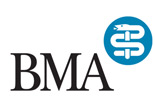BMA calls for exemption on data sharing
- 2 February 2009
 The BMA is calling for confidential health information to be exempt from new government legislation which will allow sharing of personal data across Whitehall departments.
The BMA is calling for confidential health information to be exempt from new government legislation which will allow sharing of personal data across Whitehall departments.
The controversial powers are included in the Coroners and Justice Bill which had its second reading in the House of Commons last week. The BMA claimed the data sharing powers would strip patients and doctors of any rights in relation to the control of sensitive health information.
The Bill means ministers who want to share data across departments can
issue an “information sharing order” which would be the subject of a formal consultation, a report from the Information Commissioner and would need parliamentary approval before it could be implemented.
The powers would reverse the data protection principle that information given to one government agency for one purpose should not normally be used by another for a different purpose.
The BMA told E-Health Insider and EHI Primary Care that it was “extremely concerned” by the scope of the proposals on information sharing in the Bill which is said appeared to permit an unprecedented sharing of confidential health data.
A BMA spokesperson added: “Despite repeated assurances from the government that the move towards centralised electronic health records would take full account of the requirement for confidentiality the Bill explicitly sets it to one side.”
The spokesperson said trust in a confidential health service was vital to the promotion of individual health and to the achievement of key public health aims.
He added: “During discussion with the government on NHS Connecting for Health the government gave assurances to the BMA that a central database of health records would not mean a relaxation on data protection laws. Without such as assurance patient confidence in the health service will be undermined and patients will no longer be comfortable about sharing sensitive information.”
The BMA said that it would be seeking assurances as a matter or urgency that confidential health information will be exempt from the legislation.
“If it is not to be exempt then, at the very least, it must be subject to rigorous special safeguards,” it added.
Ewan Davis, treasurer of the Health Informatics Forum of the British Computer Society and a member of the BCS’s Primary Health Care Specialist Group, is urging all those involved in health care to write to their MP about the data sharing proposals. He said: “It’s a dangerous and unnecessary provision that blows a hole in any data protection or privacy arrangements.”
He told E-Health Insider and EHI Primary Care that he believed the government was attempting to “sneak through” the powers by including them in the Coroners and Justice Bill.
He said: “I wrote to my MP and said that I’d like to see these provisions not pursued as I don’t think it’s appropriate to have these powers. If they are not going to do that I said that I think they should at least drop it from this bill and have an upfront process so that it is subject to appropriate scrutiny.”
The BMA said it believed the Bill would fall foul of Article 8 of the Human Rights Act and Davis said he believed it would not survive in the European Courts.
The government claimed better data sharing would work in the interests of the public. Justice secretary Jack Straw told the House of Commons last week: “It can help to improve opportunities for the most disadvantaged, provide better public services, reduce the burden on businesses, implement policies more effectively and detect fraud.
“At present, when a family is bereaved they often have to contact Government Departments and local authority departments many times over to make the necessary arrangements, often providing the same information. Responsible data sharing between the relevant agencies would reduce the number of people who would need to be notified of a death, thereby helping to relieve distress at a difficult time.”
Dominic Grieve, shadow health secretary, claimed the data sharing proposals drove “a coach and horses” through the duty of confidentiality that the state owes to individuals.
He added: “It has enormous implications for civil liberties and it is not right that the Government should come to the House and ask us to have it as a little add-on to another complex piece of legislation.”
The Bill had its second reading and will now go to committee stage.




